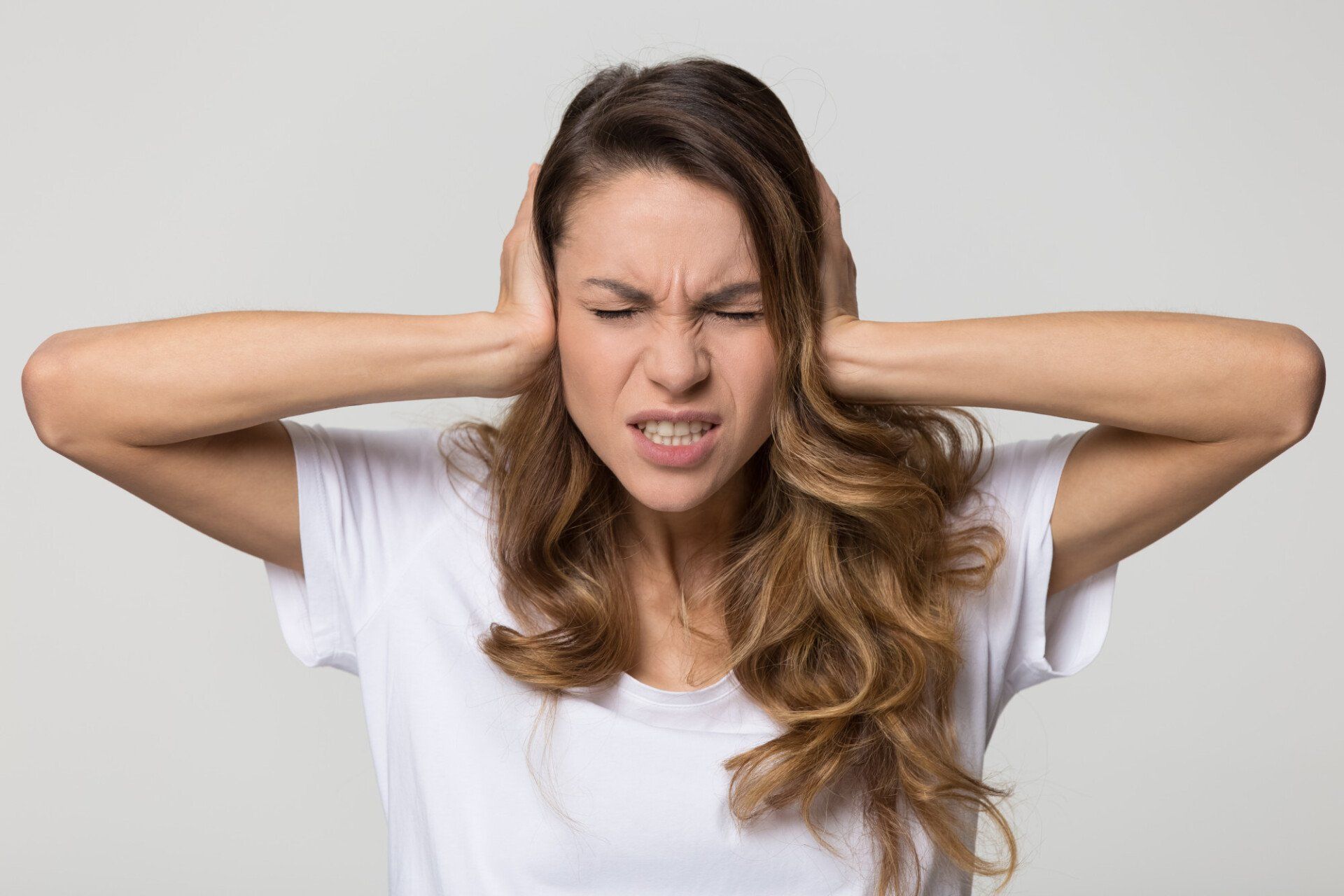What Causes TMJ Pain?

Pain in the temporomandibular joint (TMJ) affects about 10 to 35 million Americans at any given time. More specifically, women experience severe TMJ pain more than men, particularly during their childbearing years.
The good news is this condition is treatable, and you no longer have to suffer through that discomfort. Here, we'll discuss the causes of TMJ pain and the various types of TMJ treatment available to you, especially if you visit a TMD dentist in Burke, VA.
What Is TMJ?
TMJ is an acronym for temporomandibular joint. On either side of your face, there's a TMJ, a joint that connects your lower jawbone (mandible) to the side and base of your skull (temporal bone). They are known for their complex structure, sliding and rotating in front of each ear.
Your TMJ and several muscles help move the mandible, creating actions such as speaking, yawning, chewing, and swallowing. Problems like TMJ pain occur when these joints, muscles, and bones are not aligned or synchronized.
What Are TMJ Disorders?
TMJ disorder, or temporomandibular disorder (TMD), refers to any impairment of the TMJ and is usually associated with pain and limited movement of those joints. TMD mainly occurs when the joints and surrounding muscles are inflamed or irritated, leading to mild or severe pain.
TMD can cause clicking sounds or a grating sensation whenever you open your mouth. Other signs and symptoms of TMJ disorders comprise:
- TMJ pain
- Frequent headaches
- Dull, achy ear, facial, jaw, or neck pain
- Inability to chew or open and close mouth
- Pain while chewing
- Worn-down teeth
- Face swelling
- Locked jaws
- Ear ringing (tinnitus)
- Balance problems or vertigo
- A tired feeling in the face
The strangest thing about this disorder is what causes it remains unclear. Conversely, the basis for TMJ disorders could relate to stress and anxiety, pushing you to add pressure to your jaws through teeth grinding or jaw clenching. Or it could be a degenerative disease like arthritis damaging the joints.
Let's further explore the potential causes of TMJ pain.
Causes of TMJ Pain
In many cases, it's challenging to determine what causes TMJ pain. However, trauma to the jaw or joint appears to play a significant role in developing TMJ disorders.
Trauma can be separated into two types: microtrauma and macro trauma. The former has to do with internal causes of TMJ pain, such as teeth grinding (bruxism) and clenching the jaw. When these actions are performed consistently, they can lead to misalignment of the teeth, muscle spasms, and inflammation around the joints, causing discomfort in the jaw.
Macro trauma comes from an external impact on the jaw area, like a punch or physical injury from a collision. This type of trauma can lead to a broken jawbone, dislocation of the TMJ, or damage to the joint's cartilage disc.
In addition to trauma, diseases, infections, general wear and tear from aging, genetics, hormones, and dental work may contribute to the strain and deterioration of the TMJ. Ultimately, your health care provider would have to run scans and tests to assess what exactly is causing the pain in your TMJ.
Types of TMJ Treatment
Pain from TMJ disorders is usually temporary and treatable. It can be alleviated either with home remedies, non-surgical treatments, or, in severe cases, surgery.
When dealing with TMJ disorders, many symptoms respond well to home remedies or relaxation techniques that help ease stress. The most effective home remedies for relief include:
- Eating soft foods
- Resting the TMJ by avoiding activities like heavy chewing
- Applying ice or cold packs or moist heat to the area
- Performing jaw exercises
- Taking over-the-counter (OTC) pain relievers and nonsteroidal anti-inflammatory drugs (NSAIDs)
- Gently massaging or stretching the muscles in the jaw and neck
- Practicing relaxation techniques for stress management
- Using specific essential oils, such as lavender, sweet marjoram, and clary sage
If the pain persists after trying these self-managed care options, it may be time to seek medical treatment. These remedies may deliver symptom relief for both acute and chronic pain. Unfortunately, they are not a cure for TMJ disorders.
Here are some of the most common non-surgical treatments used for TMJ pain relief:
- A dental splint or a mouth guard
- Physical therapy
- Medical marijuana only where it's legal
- Biobehavioral management (biofeedback, cognitive-behavioral therapy)
- Trigger point acupuncture
- Corrective dental treatments (braces, bridges, or teeth replacement)
- Prescription-strength meds (muscle relaxants, anti-inflammatory drugs, steroid injections, antidepressants, opiates, and sleep and pain meds)
- Transcutaneous electrical nerve stimulation (TENS)
As a last resort, one of these invasive procedures may be a necessary option. Common surgical treatments include:
- TMJ arthroscopy or arthrocentesis
- Open joint surgery
- Botox to relax the jaw muscles
- Modified condylotomy (mandible surgery)
No matter which treatment your doctor or dentist recommends, before deciding on a remedy or procedure, be sure to get a complete list of all the potential benefits and risks.
How We Can Help
If your TMJ pain becomes unbearable, you may need to see a specialist like a TMD dentist in Burke, VA. A consultation with Dr. Lynch at Dental Care Burke typically includes a thorough exam, X-Rays, and a tailored TMJ treatment plan. Under Dr. Lynch's care, your symptoms, such as headaches, teeth grinding, and pain in the neck, shoulder, and back, will be alleviated.
Besides TMJ and TMD Dentistry, Dental Care Burke provides an array of other services for you and the whole family. Please
contact us today for more information on how we can help with your dental needs.












